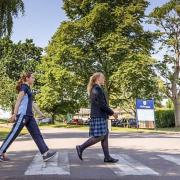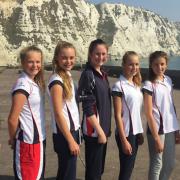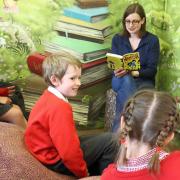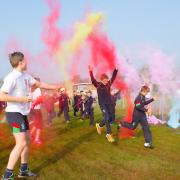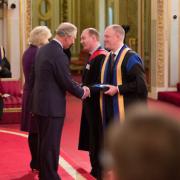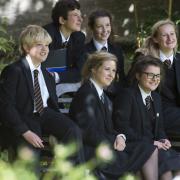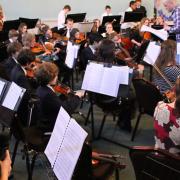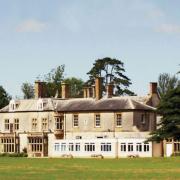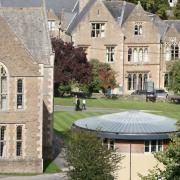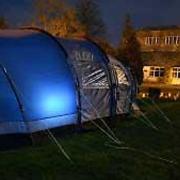Students across the country might be protesting over the rise in tuition fees, but Malcolm Rigby discovers a most cultured and comfortable place to acquire education
Driving away from Dillington House through its impressive parkland, cows and ancient frost tinted trees dotted the landscape in my intellectual peripheral vision, but I was thinking of reading Latin literature, 3D d�coupage, Gildas the Wise, Chi Kung and Second World War defences along the River Axe – so where was my real knowledge shortfall? Basically, I was looking for an excuse for a return visit. However, perhaps the greatest gap in my knowledge was that having lived in the county for the best part of a quarter of a century, I had never heard of Dillington House, which quite simply a hidden gem is. The building itself is fabulous, the rooms are wonderful, the food is pretty good, and you can get to learn about Buddhism or stump work embroidery. Since 1950 the house has been leased to Somerset County Council to operate as an adult education centre. The Director of Dillington for the past 18 years, Wayne Bennett, describes it as ‘modest’, saying, “Somerset doesn’t really have the great grand houses, this is almost as grand as it gets.” References from Anglo-Saxon charters indicate that there has been a property on the site, just outside
Ilminster, for more than 1,000 years, but the basis for the present building dates back to 1580 and the Speke family. The house’s greatest claim to fame came when Anne Speke married Frederick Lord North, who was First Lord of the Treasury (essentially Prime Minister) during the time of George III and the American War of Independence. However, he was not the most popular chap locally as he tried to introduce a cider tax – an effigy was burnt in Langport. By the early 19th century the house was acquired by the Cameron family, who still own it and who orchestrated the most significant makeover. Wayne explained: “What they did was employ an architect called James Pennethorne, who basically knocked the Georgian bit down and then tidied up the rest of the house to look like a beautiful picture postcard Elizabethan house. What you see from the outside is a re-interpretation by the early Victorians of what an Elizabethan house should be like. So it’s not fake, it is real but modified. They were aggrandising themselves to demonstrate to their neighbours how successful they had become.” The family have not lived in the house since the 1930s and the present Lord Cameron resides at Whitelackington Manor at the far end of the park. During the Second World War the house was vacant and was used by the Royal Army Service Corps for six months; the Polish Free Army were also here as well as an American parachute regiment. After the war it was leased out for the purpose of adult education. “Rebuilding Britain after the war was, in a sense, a national project,” said Wayne. “You think of the nationalisation of the railways and the coal mines, the creation of the Arts Council, the Festival of Britain; it was all about modernising Britain and of course in the 1950s there was the new Elizabethan age.” Not surprisingly, the nature of the courses has changed to reflect contemporary needs. “You can almost track social interests. The first course to be run was in home craft, and there were lots of courses in the 1950s relating to the industrialisation of farming. In the 1970s there were courses on microwave cookery; in the 1980s on slightly alternative subjects like therapies and yoga. Today we do courses on topics like digital photography and researching family history, especially using computers and the internet. There is a huge appetite for courses on history and music.” The age group of students tends to be fairly high, with people in their fifties, sixties... maybe even their nineties. The cynical might say that this is education for the older middle classes. But there is clearly a market, and Dillington House is obviously meeting it and doing so with style, as it is the only venue in the country to gain five stars in the English Tourism Council ‘campus’ Quality Inspection Scheme. “Five stars is the top accolade. We’re not a hotel, there isn’t room service and all that sort of stuff, but in terms of the type of establishment we are, then we are actually the best.” To satisfy the demands of this ageing but educationally aspirational group, a new award-winning block called the Hyde was opened just under two years ago, housing 15 en-suite, wheelchair accessible rooms and two light and airy studios perfect for art classes. Wayne is confident about the future: “I think there is a huge opportunity for developing the adult education programme here. It is staggering, the appetite there is for learning. As the State has retreated from adult education and has concentrated, understandably, on delivering skills and qualifications for younger people, the need is being met through other routes, so places like Dillington House are soaking up this demand from an ageing population who have got time but don’t want to do a course with exams. They want to learn for the sheer joy of learning.”





